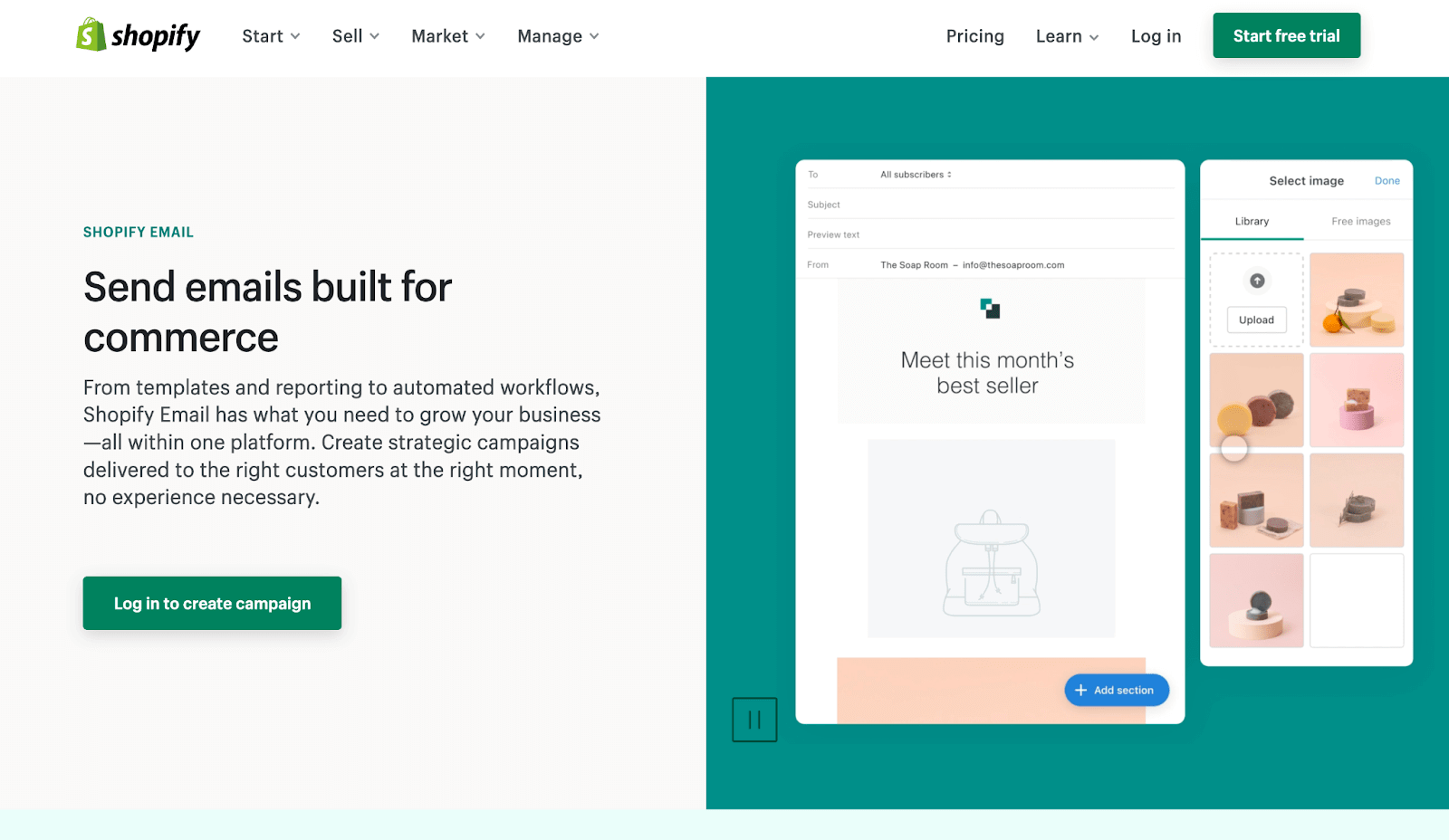By automating personalized emails, recovering abandoned carts, and building customer relationships, these tools can significantly boost your e-commerce success.
This article explores the top email marketing automation tools for Shopify in 2025, addressing common user pain points and questions to help you choose the best fit for your business.
Common Pain Points and User Questions
Based on discussions in the Shopify community on Reddit (Reddit - r/shopify) and expert reviews, users often face these challenges:
- Choosing the Right Platform: With options like Klaviyo, Mailchimp, and Omnisend, users struggle to pick the best tool for their needs.
- Cost Concerns: Many worry about pricing, especially for startups with limited budgets.
- Shopify Integration: Users want tools that sync seamlessly with Shopify for contacts, products, and discounts.
- When to Start: New store owners question whether automation is necessary at the startup stage.
- Feature Overload: Some find advanced tools overwhelming and seek simpler options.
Top Email Marketing Automation Tools for Shopify
Below is a detailed comparison of leading tools, focusing on features, pricing, integration, and suitability for Shopify stores, based on insights from Email Tool Tester and Reddit discussions.
1. Klaviyo

- Features: Advanced segmentation, pre-built workflows, CRM, dynamic blocks, A/B testing, product reviews (additional $25/mo).
- Pricing: Free for 250 subscribers (500 emails); $30/mo for 1,000 subscribers (unlimited emails); $100/mo for 5,000 subscribers.
- Shopify Integration: Quick setup, pulls shipping data, supports 14-day free trial (Klaviyo Shopify).
- Pros: Tailored for e-commerce, robust automation, excellent analytics.
- Cons: Can be expensive for small businesses.
- Best For: Growing stores needing advanced automation and analytics.
2. Omnisend

- Features: Automated workflows (e.g., cart abandonment, order confirmations), SMS, push notifications, WhatsApp, product reviews, unique features like gift boxes and scratch cards.
- Pricing: Free for 500 emails/mo (250 contacts); $16/mo for 500 subscribers (6,000 emails); $81/mo for 5,000 subscribers.
- Shopify Integration: Easy integration, automatic product addition, direct sign-up forms (Omnisend Shopify).
- Pros: Affordable, multi-channel marketing, creative email features.
- Cons: Less focus on advanced e-commerce analytics.
- Best For: Stores seeking multi-channel marketing and engaging email designs.
3. ActiveCampaign

- Features: Deep data integration, CRM, dynamic segments, tagging, advanced automations, product embedding.
- Pricing: $19/mo for 1,000 contacts; $99/mo for 5,000 contacts; annual discounts available.
- Shopify Integration: Automatic contact addition, workflow editor, 14-day free trial (ActiveCampaign Shopify).
- Pros: Powerful automation, strong CRM capabilities.
- Cons: Steeper learning curve for beginners.
- Best For: Businesses needing advanced automation and CRM integration.
4. Mailchimp

- Features: Generous free plan, advanced analytics, automation templates, retargeting ads.
- Pricing: Free for 2,000 contacts (10,000 emails/mo); $9.99/mo for 500 contacts; $75/mo for 5,000 contacts.
- Shopify Integration: Recent improvements, but some product insertion issues (Mailchimp Review).
- Pros: User-friendly, affordable, free tier for beginners.
- Cons: Limited automation compared to Klaviyo, occasional integration hiccups.
- Best For: Small businesses and beginners.
5. Shopify Email

- Features: Built-in tool with analytics, templates, basic automations.
- Pricing: Free for 10,000 emails/mo; $1/1,000 emails thereafter.
- Shopify Integration: Seamless, as it’s part of Shopify (Shopify Email).
- Pros: No additional cost, easy to use.
- Cons: Lacks advanced features like product reviews or multilingual support.
- Best For: Startups wanting a simple, cost-effective solution.
Comparison Table
| Tool | Key Features | Pricing (Starting) | Shopify Integration | Best For |
|---|---|---|---|---|
| Klaviyo | Advanced segmentation, CRM, A/B testing | $30/mo (1,000 subscribers) | Quick setup, pulls shipping data | Growing stores, advanced automation |
| Omnisend | Multi-channel, gift boxes, SMS | $16/mo (500 subscribers) | Automatic product addition | Multi-channel marketing |
| ActiveCampaign | Deep data integration, CRM, automations | $19/mo (1,000 contacts) | Automatic contact addition | Advanced automation, CRM needs |
| Mailchimp | Free plan, analytics, templates | Free (2,000 contacts) | Recent integration, some issues | Beginners, small businesses |
| Shopify Email | Basic automations, templates | Free (10,000 emails/mo) | Seamless, built-in | Startups, cost-conscious stores |
Choosing the Right Tool
Selecting the best email marketing automation tool depends on several factors:
- Budget: Shopify Email and Mailchimp offer free plans, ideal for startups. Klaviyo and ActiveCampaign are pricier but offer advanced features.
- Store Size: Small stores may find Shopify Email sufficient, while larger stores benefit from Klaviyo’s segmentation.
- Automation Needs: For complex workflows, Klaviyo or ActiveCampaign are top choices. For simpler needs, Mailchimp or Shopify Email suffice.
- Integration: Ensure the tool syncs contacts, products, and discounts seamlessly with Shopify to avoid manual work.
When to Start Using Email Marketing Automation
Many new Shopify store owners wonder if automation is necessary at the startup stage, as seen in Reddit discussions (Reddit - r/shopify). Even small stores can benefit from basic automation, such as welcome emails or abandoned cart recovery, to nurture leads and drive sales. As your store grows, investing in advanced tools like Klaviyo can enhance personalization and segmentation.
Best Practices for Email Marketing on Shopify
To maximize the effectiveness of your email marketing automation, follow these tips:
- Segment Your Audience: Use purchase history or behavior to send targeted emails.
- Create Welcome Series: Engage new subscribers with introductory emails.
- Recover Abandoned Carts: Send timely reminders to recapture lost sales.
- Follow Up Post-Purchase: Encourage repeat purchases with thank-you emails and product suggestions.
- Test and Optimize: Monitor open rates and click-through rates to refine campaigns.
Frequently Asked Questions
- Which email marketing platform is best for Shopify? The best platform varies by need. Klaviyo excels in advanced features, Mailchimp is beginner-friendly, and Omnisend offers multi-channel options.
- Is Shopify’s Email tool sufficient? It’s a solid starting point for basic automation, especially since it’s free up to 10,000 emails. For advanced features, consider third-party tools.
- How much does email marketing automation cost? Costs range from free (Shopify Email, Mailchimp) to $30/mo (Klaviyo) or more, depending on subscriber count and features.
- Can free tools be effective? Yes, Shopify Email and Mailchimp’s free plans are effective for small stores, offering basic automation and analytics.
Conclusion
Email marketing automation is essential for Shopify stores to drive sales and build customer loyalty. Tools like Klaviyo, Omnisend, ActiveCampaign, Mailchimp, and Shopify Email cater to different needs, from advanced automation to budget-friendly options.
By addressing pain points like cost, integration, and complexity, and following best practices, you can choose a tool that aligns with your business goals. Whether you’re a startup or an established store, there’s an email marketing solution to help you succeed.

